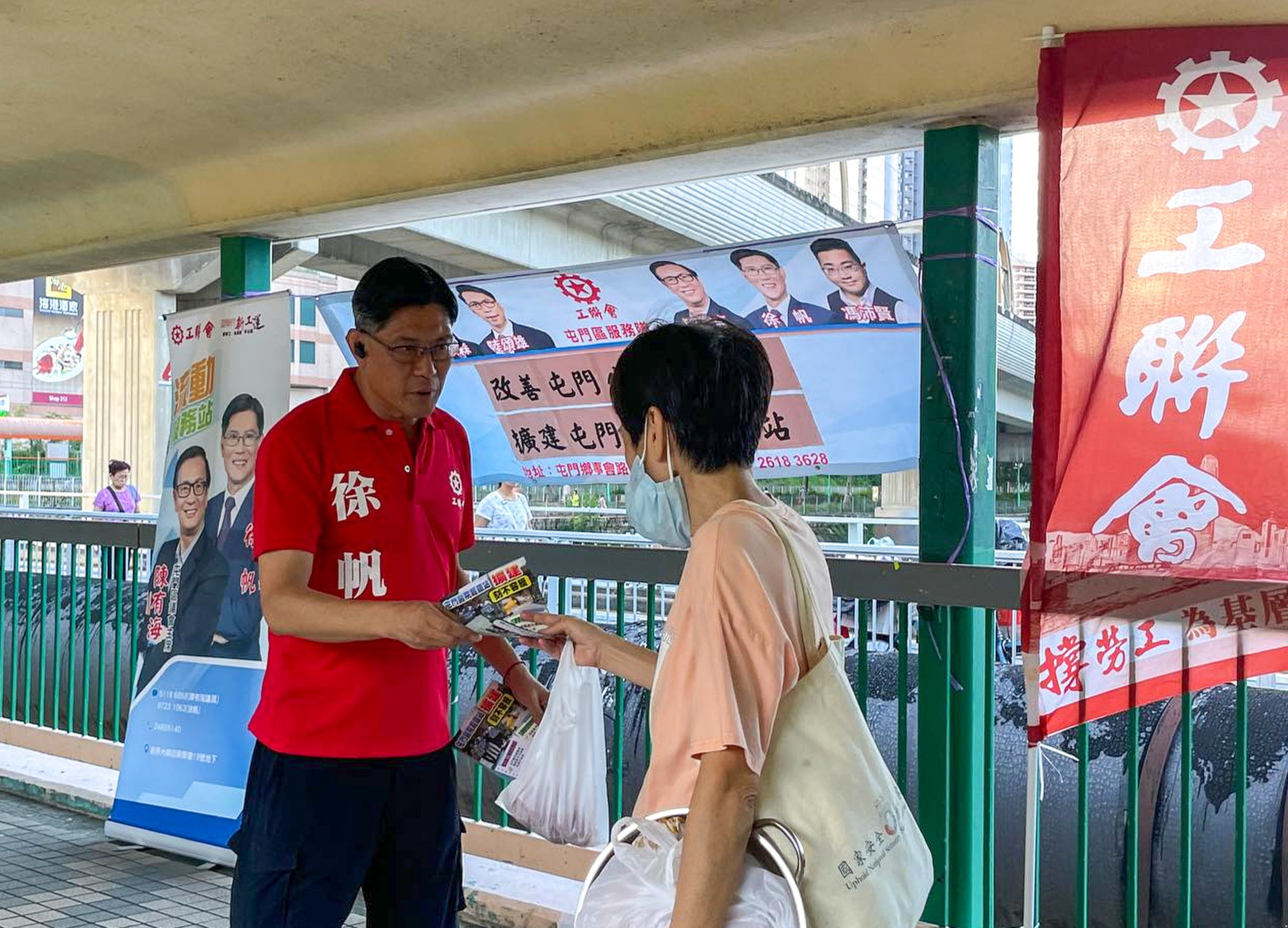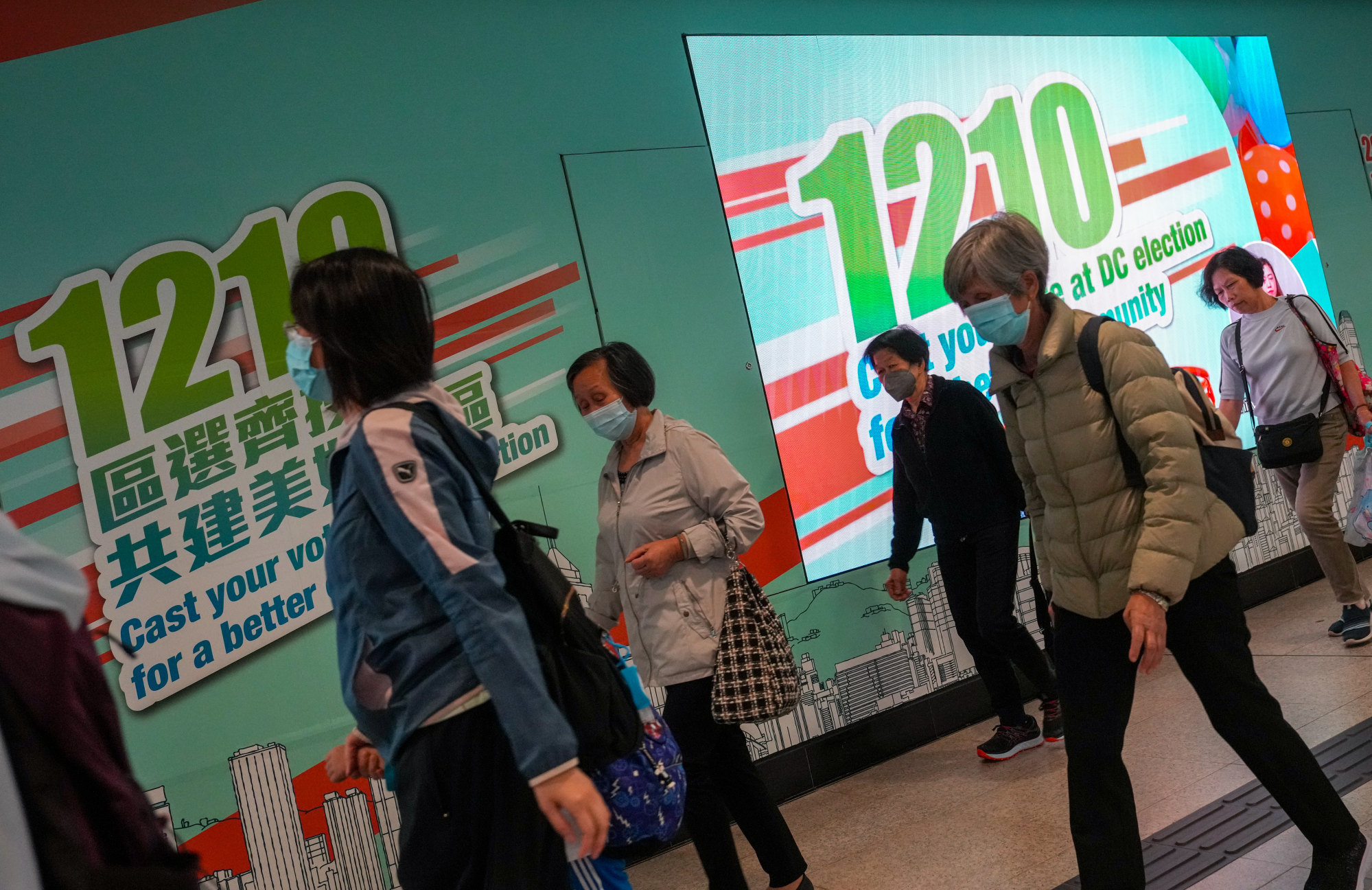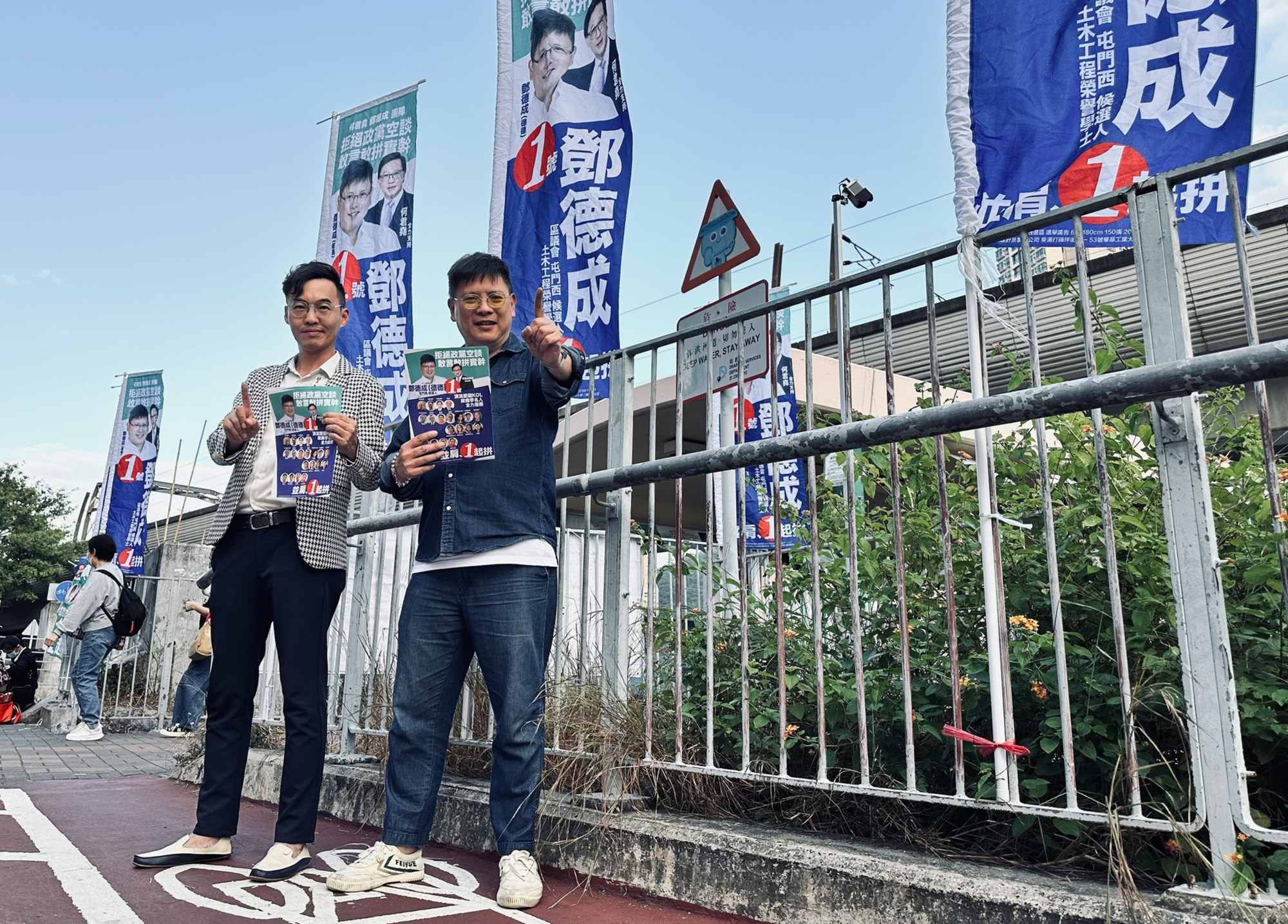Hong Kong district council election: marginal candidates battle uphill against voter apathy, bigger parties’ clout
“I am not optimistic about winning. I have a lot more pressure than I had in 2019,” said the 39-year-old lawmaker’s assistant, who has been serving in the Tuen Mun and Yuen Long communities as a worker for his group since 2018.
Marginal aspirants are concerned their chances will suffer if many of the city’s 4.3 million voters stay home on polling day.
That is a prospect the city administration is concerned about too, and Chief Executive John Lee Ka-chiu has been leading officials in encouraging Hongkongers to exercise their right to vote, with observers saying a low turnout would reflect poorly on the election.
Hong Kong district poll hopefuls from ethnic minority groups call for diversity
The district council election has been revamped too, with the number of directly elected seats slashed to just 88 in 44 enlarged geographical constituencies. Most of the remaining 382 seats will be appointed by the city leader or chosen by three district committees stacked with Beijing loyalists.
A check by the Post found that of the 171 candidates running for the 88 directly elected seats, almost three-fifths were from major pro-establishment parties such as the Democratic Alliance for the Betterment and Progress of Hong Kong (DAB), Federation of Trade Unions (FTU) and New People’s Party.

Three groups have only one candidate each, while five others have between three and seven candidates.
Difficulties for the marginal groups emerged early. Roundtable hoped to field five candidates for the direct election, but only one, Chong, received the required endorsements to run.
Only one of the seven people put forward by Path of Democracy met the nomination threshold, but both hopefuls from centrist party Third Side failed to do so.
Can Hong Kong’s John Lee get voters out casting ballots for coming district poll?
Chong has more than 160,000 residents in his Tuen Men West constituency, and his rivals are Tsui Fan from the FTU, Chung Kin-fung from the DAB and independent candidate Tang Tak-shing, who chairs the pro-establishment activist group Politihk Social Strategic.
“Marginal groups like ours usually have no ‘iron votes’,” said Chong, referring to a party’s assured vote bank. “The more people coming out to vote, the bigger our chance of winning.”
Roundtable, founded by outspoken lawmaker Michael Tien Puk-sun in 2017, is known for being open to different political views.

Chong, Tien’s assistant, has been doing his utmost to appeal to centrist and centre-right voters. But with limited financial and human resources, it has proven an uphill battle against a general indifference among voters.
“I have around 30 volunteers to help with canvassing, whereas major parties can easily deploy over 100,” he said. “I’ve spent most of my campaign time explaining the election process, rather than myself, as residents are often clueless about the procedures.”
The Bauhinia Party’s only candidate, Brandon Ng Chun-fai, 30, said he faced big challenges too, not least the lack of public attention and money.
The party, founded in 2020 and led by a group of finance industry executives originally from mainland China, did not have deep ties with traditional clan associations or large societies.
Ng said he hoped to attract votes with his party’s call for the “one country, two systems” principle of governance to remain for 100 years. Under the Basic Law, the city’s mini-constitution, the principle was to remain for 50 years from Hong Kong’s return to China in 1997.

Running in Tai Po North, Ng claimed his party’s call was relevant to his constituents as tens of thousands of land leases in the New Territories would expire in mid-2047, at the end of the 50-year mark.
He is going up against Wu Cheuk-him from the DAB, Ng Wei-hang from the FTU, Lau Man-kit from the New People’s Party and independent hopefuls Lok Siu-luen and Yip Wai-yi.
Hong Kong man loses judicial challenge over new district poll nomination rule
Sam Ip Chun-sang, 30, the only candidate from the Path of Democracy think tank, said his rivals from the main parties had many more street booths than he did in the Islands constituency, the largest geographical constituency covering more than 20 islands.
The think tank executive said his “tiny group” of helpers was having a hard time against DAB’s Yip Pui-kei, FTU’s Lau Chin-pang and independent Chung Mei-wai.
“I need a person who is experienced in election and district work to team up with me,” said Ip.
Yankie Chan Yin-kwan, one of five candidates from the New Prospect for Hong Kong party, considered herself lucky as she had about 60 volunteers every day in the Tin Shui Wai South and Ping Ha constituency in Yuen Long district.
At 28, the party district executive is the youngest candidate facing off against the DAB’s So Yuen and two independent candidates – incumbent councillor Chan Sze-ching and Tang Wai-kin, who has received the backing of some political heavyweights.
She said her major challenge was that residents knew little about her party, which was founded in 2019 by two mainland-born Hongkongers and whose star member is lawmaker Gary Zhang Xinyu, an engineer.
‘4,500 Hongkongers sign up to vote’ at sites near border ahead of district poll
“They only know Gary,” she said. “So most of my campaign time is spent telling residents what our group is and what changes we hope to bring to Hong Kong.”
Chinese University political scientist Ma Ngok said it might be difficult for the centrist candidates to appeal to opposition supporters who did not buy into the revamped election.
He said that in the past, when opposition candidates ran against pro-establishment rivals in elections, there were voters prepared to choose middle-of-the-road candidates.
“But it might no longer be the case with the opposition out of the game now,” he said.